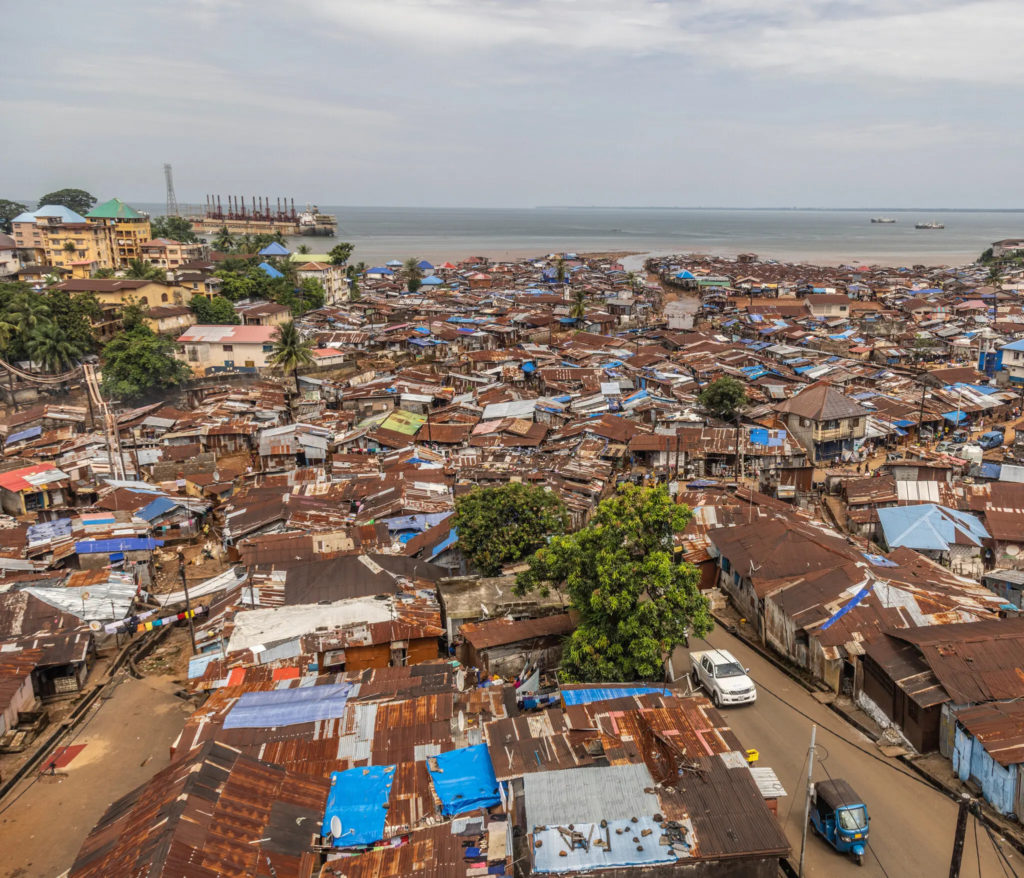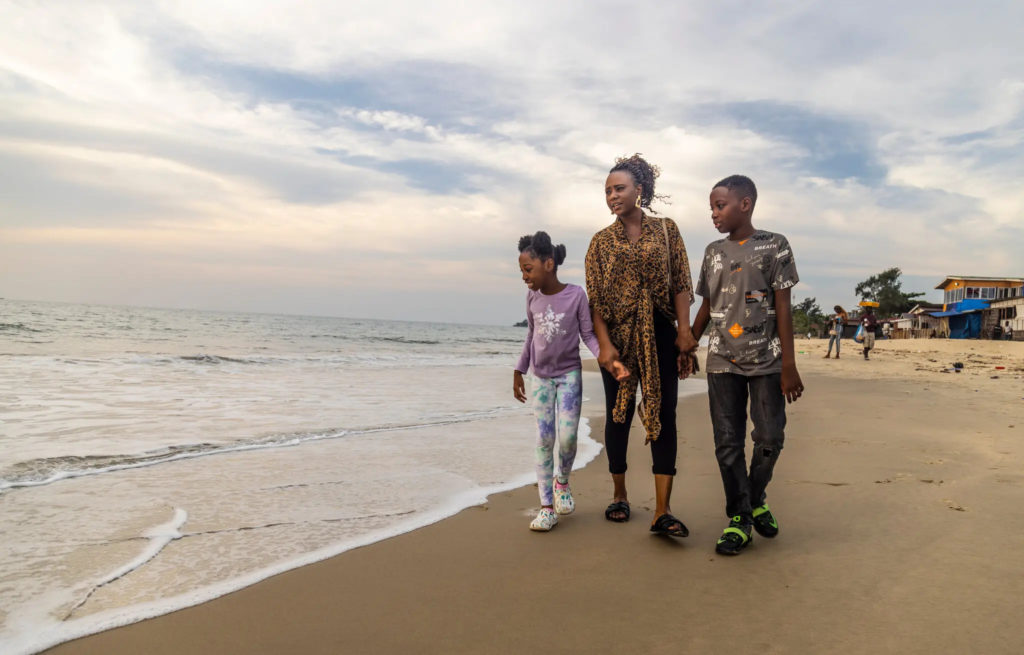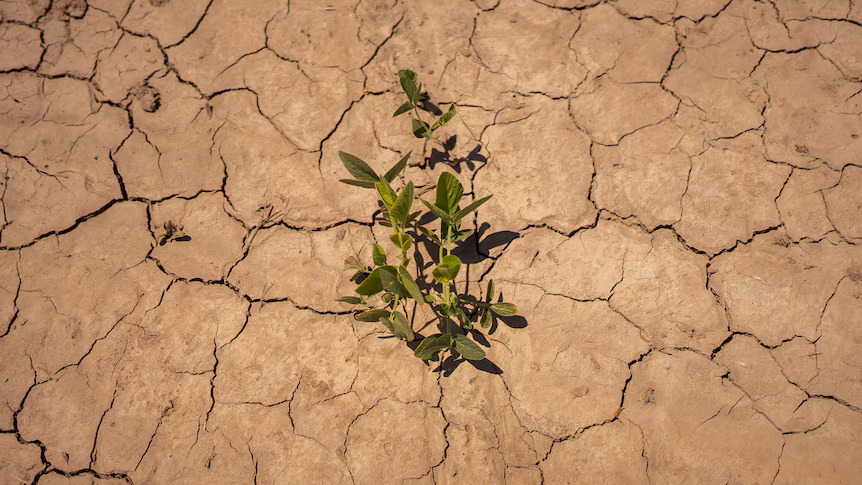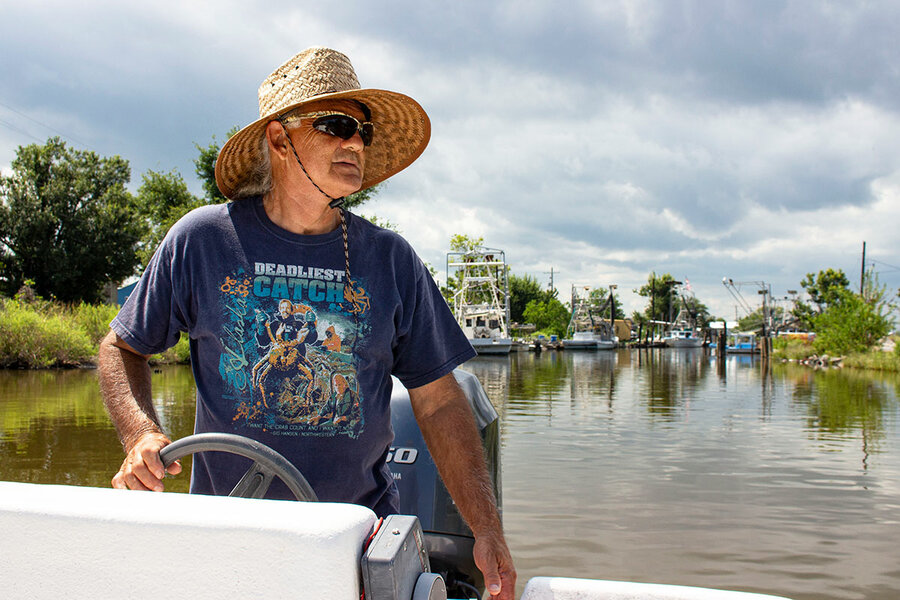Original publication by Elian Peltier for nytimes.com on 6 January 2023
Eugenia Kargbo remembers when Sierra Leone’s capital was greener and cooler, and is now trying to help the city combat rising temperatures.

Yagazie Emezi for The New York Times
Before Sierra Leone’s capital of Freetown exploded into a sprawling metropolis — eating up wooded hills and encroaching on the Atlantic — Eugenia Kargbo loved it for the pristine beaches and lush forests that once enveloped the city, and for its green landscape.
Ms. Kargbo, who grew up in the capital in the 1990s, would like to see the city reclaim those vistas. And as Freetown’s first chief heat officer, a post created in 2021, that is her seemingly impossible mission: to make the city verdant and livable again by helping it cope with rising temperatures and other climate changes. These disruptions, along with decades of uncontrolled urban development, have left the capital prone to deadly landslides and annual floods, with heat waves almost all year long.
“Heat is invisible but it’s killing people silently,” Ms. Kargbo said in an interview on one of the top floors of Freetown’s city hall, a massive air-conditioned building that towers over the dozens of informal settlements dotting the capital of the small West African nation.

“Children are not sleeping at night because of extreme temperature,” she said. “It affects their ability to learn and their parents’ productivity.”
But this is a city of 1.2 million people, where up to 60 percent of people live in makeshift housing made of corrugated iron roofs and walls that turn the place into an open-air oven most of the year. The country is one of the world’s poorest; few people have air conditioning; and there is not nearly enough money to finance ambitious fixes, Ms. Kargbo said. Where does one start?
Ms. Kargbo is going for near-term fixes first. “People are suffering now,” she said.
A 35-year-old mother of two, Ms. Kargbo was a child when Sierra Leone plunged into a decade-long civil war that left at least 50,000 dead. She studied at the University of Sierra Leone and in Milan, and began her career as a banker.

Yagazie Emezi for The New York Times
As she began raising a family, Freetown started suffering from hotter days and other weather-related disasters, and Ms. Kargbo was drawn toward a role in government. In 2017, a landslide on the slopes of the capital that killed more than 1,100 people served as an “eye opener into the problems we faced,” she said.
Ms. Kargbo’s portfolio as heat officer is part of a broader plan known as “Transform Freetown” that is championed by her boss, Mayor Yvonne Aki-Sawyerr. Her position was created and funded by the Adrienne Arsht-Rockefeller Foundation Resilience Center, part of the Washington-based Atlantic Council.
Ms. Kargbo said she wanted to raise her son and daughter, now 11 and 8, in a city with parks and public fountains. She envisions a greener, cooler Freetown where the untouched beaches she walked in her youth are preserved instead of subject to illegal sand mining, and where trees she once found solace in are protected, instead of cut to build more houses.
“Freetown was beautiful, and I saw that beauty fading away,” she said.
As heat officer, Ms. Kargbo has installed a few public gardens that provide tiny oases of freshness to elders sipping tea under the shade of trees. Her office has also set up canopies in outdoor markets meant to protect vendors selling fish, meat and vegetables for long hours from the blazing sun. She wants to provide buildings with white roofs that will reflect heat instead of absorbing it, install public fountains and plant many, many more trees.
Ms. Kargbo is also in charge of the city’s sanitation policies, and has vowed to replace most of the city’s illegal dumping sites with green spaces.

Yagazie Emezi for The New York Times
But whether she can accomplish all this remains an open question.
Extreme and lengthy heat can debilitate bodies; some of the far-reaching effects of extreme heat are already taxing countries in much of the world.
Freetown has an equatorial climate that brings little variation in temperature throughout the year, and barely any respite at night.
Average temperatures range from the mid-70s to the high-80s, with regular peaks in the 100s and 110s. In 2020 there were just over about 30 days with an average temperature above 81 degrees Fahrenheit throughout the day. But by 2050, the city expects to have temperatures that high almost half the year, according to predictions by Vivid Economics, a London-based consultancy.
In Kroo Bay, a settlement of 18,000 inhabitants just half a mile from Ms. Kargbo’s office, families often sleep outside because it is too hot inside their homes at night.
“The past summer in Europe made many people realize that global warming is happening now, but here we’ve been witnessing this for years,” Ms. Kargbo said.
Ms. Kargbo is one of seven women appointed chief heat officers by the Arsht-Rockefeller foundation across four continents. Kathy Baughman McLeod, the program’s director, said she hoped Ms. Kargbo’s job would be replicated in other African countries.
“This role or something similar will be popping up everywhere, because leaders will need to have visible, tangible action to protect people,” Ms. Baughman McLeod said. “Eugenia is the face of heat.”

Yagazie Emezi for The New York Times
But for the moment Ms. Kargbo’s work, and salary, depends on foreign money. The World Bank, United Nations agencies and private partners, like financial institutions, pay for her projects.
“City Councils in Africa are not well equipped to cope with key but not always obvious phenomena” like rising temperatures or urban heat islands, said Wanjira Mathai, a Kenyan environmentalist who called Ms. Kargbo’s work so far “remarkable.”
Last fall, Ms. Kargbo was listed as one of 100 rising stars by Time magazine. And she is working on a blueprint for a strategy to combat heat in other African cities.
Critics, though, say she can have only limited effect because the problem is too large for any one official to tackle alone. From uncontrolled sand mining on beaches to mudslides from hills, “Freetown is a geographical hazard which can’t be fixed,” said Alhaji U. N’jai, a professor of environmental science at the University of Sierra Leone’s Fourah Bay College.
On a recent afternoon, Ms. Kargbo walked unrecognized in Congo Market, one of the city’s largest, where city workers have installed about 40 canopies made of Plexiglas roofs to protect vendors from the heat. Many people around her were unaware she was behind the initiative.
Much more conspicuous was Ms. Kargbo’s boss, the mayor, Ms. Aki-Sawyerr, who arrived at the market in an air-conditioned car and was greeted by hundreds of passers-by as she rolled down the window — the air conditioning still on.
Not all the vendors had received a canopy. Many sheltered from the sun underneath beach umbrellas covered with black plastic bags.
“Why is there cover for some, and not for others?” Mavel Dixon, a 45-year-old vendor, asked as she wiped sweat from her forehead and pointed at her stall.

Yagazie Emezi for The New York Times
Another project championed by Ms. Kargbo that has attracted headlines is a plan to plant one million trees by the end of 2022. The initiative is nicknamed “Freetown the tree town.” But a lack of funding has slowed the effort, with just above 550,000 trees planted. Of those, 450,000 have survived.
Ms. Kargbo said the city’s challenges in dealing with problems of heat were compounded by the fraught relationship that the government has with the administration of Ms. Aki-Sawyerr, a former accountant who is in the opposition party.
“The root causes aren’t addressed: Trees are still being cut down in Sierra Leone, houses are still being built on hill sides, people keep using waste to encroach on the sea,” she said. “We receive very little funding from the government, but when a disaster hits, people turn to us.”
For now, intense heat makes daily life in Freetown insufferable for many residents, Ms. Kargbo said, with reports of heat strokes, dizziness and kidney diseases. The weather can also strain tempers.
“I also snap at people when temperatures are high,” she said. “We don’t take notice of it, but heat stirs up violence.”
Joseph Johnson contributed reporting.




